How It Works
You might be wondering how do my panels work at night when there is no sunlight? You may be tied to the grid which is when the energy flows back to your house from your utility provider or you may have battery storage. A battery stores all you excess energy that is generated during the day that you do not use. When your panels are not producing energy, the battery kicks in and powers your home such as at night or during a blackout. Once your battery is completely full you will then send energy back onto the grid. The battery storage will protect you from power outages, lower your energy bills and avoid peak electricity rates. There are a few things to take into consideration when looking at what type of battery works best for you.
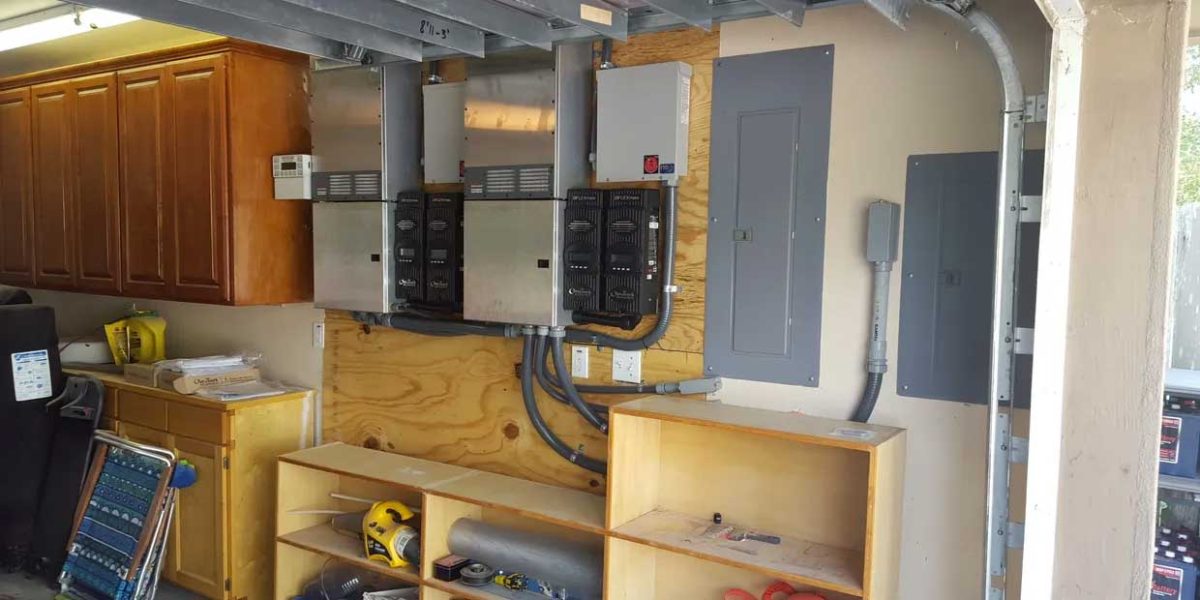
- Capacity & Power: Capacity is the total amount of energy a solar battery can store (kWh). The size of this will depend on the amount of energy you consume and produce. The capacity of a battery tells you how big your battery is, but it doesn’t tell you how much electricity a battery can provide. In order to understand that we need to address the battery’s power rating. A power rating is the amount of energy a battery can deliver (kW). A battery with a high capacity but low power rating will deliver a lower amount of energy but for a longer time and vises versa.
- Depth of Discharge: The Depth of Discharge (DoD) is the amount of the battery’s capacity that has been used. In other words, it’s the amount of energy that has been removed from a fully charged state of the battery. A higher DoD means that you will be able to use more of the battery’s capacity.
- Battery Life: With your phone you may notice throughout time that it doesn’t hold a charge as well as it did in the beginning. The same applies to solar battery storage. With time the battery will lose its ability to hold a charge which can be based on what brand you use. In general, batteries last between 5 to 15 years. However, it depends on the amount of energy you are consuming, the capacity & power rating and if you are tied to the grid.
There are a number of different things to consider when choosing the right battery storage for you, but we got you covered! We know this may be overwhelming but that’s why our skilled engineer will do the work for you and select the best battery storage!
SMA Sunnyboy
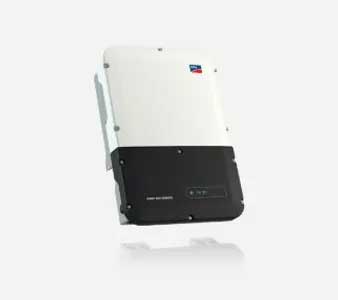
SMA provides some of the best energy storage technology, with 30 years of experience. We trust that SMA will provide you with energy even during a blackout. The SMA energy system will instantaneously disconnect your system from the grid and provide energy from the battery. They offer a versatile, simple, flexible and innovative solution to battery backup.
Generac PWR Cell Battery
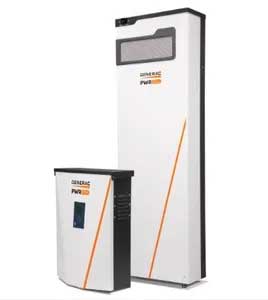
Generac PWRcell is an intelligent energy storage system. It is equipped with PWRview energy monitoring technology that will protect you during times of power outages and allows you to control your energy usage to save on utility costs. Get through the night on stored solar energy and protect what’s important! Gain greater independence from the grid!
Tesla PowerWall
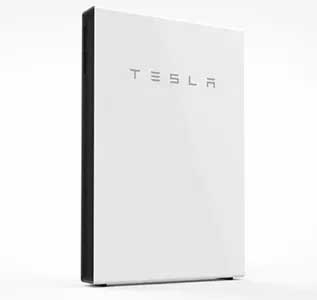
The Tesla Powerwall detects grid outages and automatically becomes your home’s main energy source. Protect your home from the next power outage and keep your lights on.
Tesla Electrical Car Charger
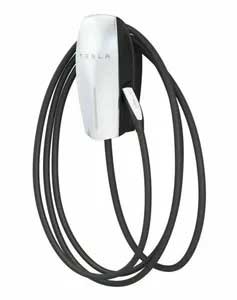
A Tesla Wall Connector offers the fastest charging speed for your vehicle at home. Wall Connectors are available with either an 8.5’ or 24’ cable length.
Now offering Delta Pro Ultra Battery Backup
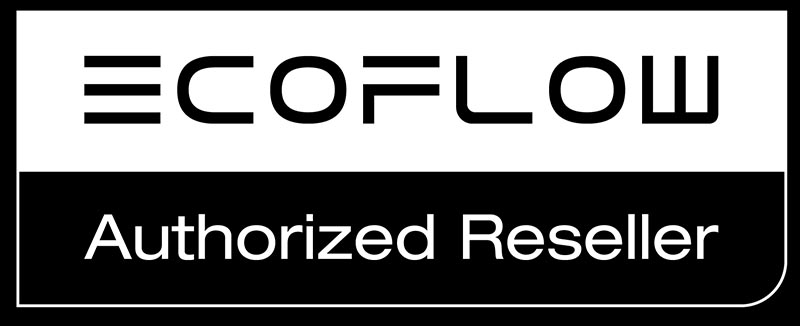
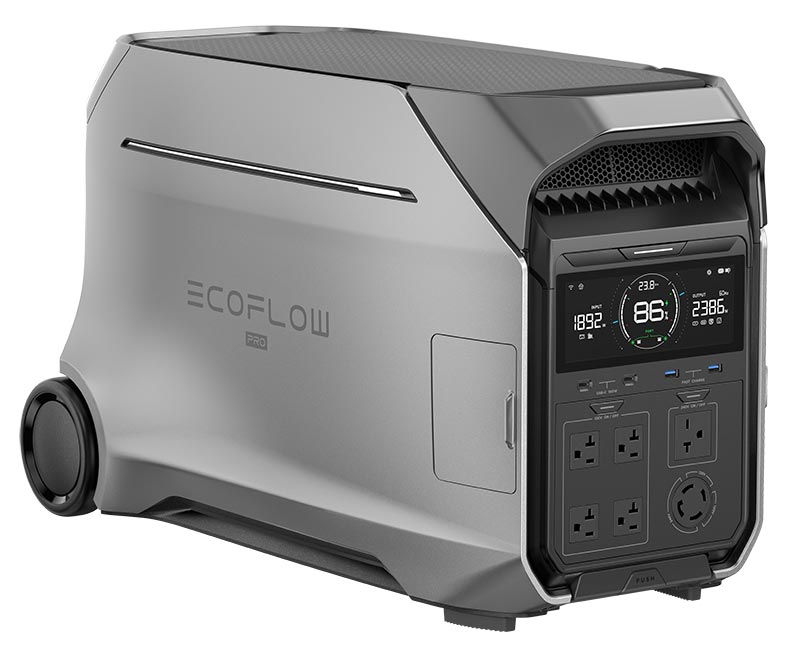
| DELTA PRO ULTRA Inverter DELTA PRO ULTRA Battery Smar Home Panel 2 Delta Pro Ultra (Inverter + 1*Battery Pack) Delta Pro Ultra(1*inverter+ 1*Battery)+SHP2 Delta Pro Ultra(1*inverter+ 2*Battery)+SHP2 Delta Pro Ultra(1*inverter+ 3*Battery)+SHP2 Delta Pro Ultra(1*inverter+ 4*Battery)+SHP2 Delta Pro Ultra(1*inverter+ 5*Battery)+ SHP2 2*DPU+SHP2 400W SP Rigid 400W*2 | $2,799.00 $3,299.00 $1,899.00 $6,098.00 $7,997.00 $9,098.00 $12,397.00 $15,696.00 $18,995.00 $14,095.00 $1,199.00 $999.00 |
You might be wondering how your solar panels work at night when there’s no sunlight. You also may be tied to the grid, which is the energy that flows into your home from a utility provider. You may even have battery storage for your solar panels, which stores all of the excess energy being generated during the day.
When your panels aren’t producing energy, the battery takes over so it can provide power to your home. This can be helpful during the nighttime hours or when there’s a blackout. Once the battery is completely full, the panels will send energy back onto the grid. This type of setup can be helpful during power outages. It can also lower your electricity bill, so you can avoid peak rates.
Here are some of the common questions people ask about battery storage when it comes to solar panels.
Battery Storage FAQ
They typically last 5 to 15 years, however it all depends on the manufacturer. We make sure to select the best battery fit for your needs.
Lithium ion is the best type because they are lighter, have a high DoD, and longer lifespan than other batteries.
Having a battery will allow you to always have reliable energy flowing into your home. During a blackout, you’ll be the one with power verses everyone else. In addition, you most likely will not be drawing energy from the grid which will reduce your electricity bill.
Yes, but that will depend on the battery brand you choose.
There are a few things you need to consider while you’re looking at what type of battery storage works best for your home:
• Capacity and Power — Capacity refers to the total amount of energy that a solar battery can store, which is measured in kilowatt hours (KWh), and the amount you need will depend on how much energy your home consumes and produces. The capacity of a battery is a measure of how big it is, but it doesn’t tell you how much electricity it can provide. To understand this, you need to look at the battery’s power rating. This is the amount of energy that it can deliver, which is measured in kilowatts (KW).
• Depth of Discharge (DoD) — This refers to the amount of the battery’s capacity being used. In other words, it refers to the amount of energy that has been removed from a battery that has been fully charged. A higher DoD means that you’ll be able to use more of the battery’s capacity.
• Battery Life — You may have noticed that, over time, your phone doesn’t hold a charge as well as it did when you first got it. The same thing applies to battery storage for solar panels. The batteries will lose its ability to hold a charge as time goes on, which is what is meant by “battery life.” But they will usually last between 5 and 15 years (depending on your energy consumption, capacity, power rating, and whether you’re tied to the grid).
There are a number of other things you should consider while you’re choosing the right type of battery storage, so be sure to speak to a professional for more information.
Here are some of the benefits of having solar panel battery storage for your home:
• Better use of renewable energy — Renewable energy has been around for a long time, but it’s often wasted. Without some way to store it, renewable energy can only be used when the conditions are favorable. Solar energy will only work when the sun is shining. If you install battery storage for your solar panels, you can make better use of renewable energy by harnessing, storing, and using it even when energy isn’t being produced.
• A backup power solution — While some people want to use solar energy as their main power source, others want to use it as a backup power source (which can be helpful if there’s inclement weather or an extended blackout).
• Long-term cost savings — While solar panel battery storage isn’t cheap to install, it will pay for itself over time because you’ll be able to save a great deal on your monthly energy bills. It will also add value to your home. So if you can afford to pay for the initial installation, you’ll be able to take advantage of the long-term savings.
More people are realizing that the benefits of getting battery storage for solar panels outweigh the negatives, so be sure to speak to a professional for more information.
Lithium-ion batteries can be reused and recycled, but it’s a complicated and expensive process (though research is still being continued). Like all of the other rechargeable batteries and electronic waste, lithium-ion batteries that are used for large-scale storage need to be recycled or disposed of outside of the traditional wasted stream. Not only are they flammable and explosive in nature, but they’re also toxic (which can be detrimental to human and environmental health).
Temperature is the most important factor in determining battery life, which is why they need to be properly maintained and stored in a reasonably cool location. They also need to have enough protection from freezing temperatures, or they will require more voltage to reach their maximum charge. If their temperature gets above 90 degrees, they will overheat and require a reduction in charge.
It can depend on a number of factors, which can include the following:
– How much energy your household uses in a day.
– The capacity and power rating of your solar battery.
– What loads your battery will need to support.
– Whether you’re connected to an electrical grid.
Your solar batteries should have enough capacity to power your home for multiple days, even if your panels aren’t producing electricity. Some batteries can also be recharged by your solar panels (even if there’s a power outage).
Unless you have battery storage and a special kind of inverter (usually a DC-coupled inverter) to “island” the system during a power outage or shutoff, your solar panels won’t be able to power your home. They’re set up that way to protect utility workers from solar power flowing back onto the grid during power outages.
If you want to power your entire home, you will most likely need to install more than one battery. But instead of installing more battery backup (which can be expensive), a more practical approach is to install a battery backup system that’s only designed to run critical loads (such as refrigeration, lighting, entertainment, and communication).
You can install a battery storage system without installing solar panels, but it has one main disadvantage. If there’s a power outage, you won’t be able to recharge them.
If you already have solar panels, you can install a battery storage system in two different ways:
– You install a separate AC-coupled inverter battery storage system (which is more common and cost-effective).
– You replace your current inverter with a DC-coupled inverter battery storage system (which is a good option if your inverter is nearing the end of its life).
Adding a battery storage system to your solar panels may require some electrical upgrades to your home, but it won’t require the existing PV system to be re-permitted or re-inspected unless additional PV panels need to be installed.
There are three main types of battery storage systems: lithium-ion, lead-acid, and saltwater. Lithium-ion batteries are often the most suitable for home battery storage systems because they’re small, lightweight, and have a longer shelf life than other battery technologies. They also have a higher discharge depth, so you’ll be able to use more of the battery’s capacity.
You need to check the battery’s capacity and power rating before you make a purchase. The capacity will tell you how much electricity your battery can store, while the power rating measures how much it can discharge at a given time. Batteries with a high capacity and a low power rating can power a number of small appliances for a long period of time. Batteries with a low capacity and a high power rating can run your entire home, but they can only do so for a few hours. An experienced installer will be able to determine what type of battery is right for your specific needs.
Residential battery storage systems usually cost between $10,000 and $25,000, but the cost can go higher. This price doesn’t include the cost of installation or any extra equipment you may need, but the Inflation Reduction Act (IRA) allows you to deduct 30% of the cost of a battery storage system as a federal investment tax credit.
Solar batteries can come in a variety of sizes (depending on the model and manufacturer), but most of them have a slim and compact design. So, they’ll be small enough to fit inside a garage or basement. Be sure to speak to a professional for more information.
If you’re looking for one of the best places for solar power in Corpus Christi, be sure to get in touch with Solar Power Integrator.
